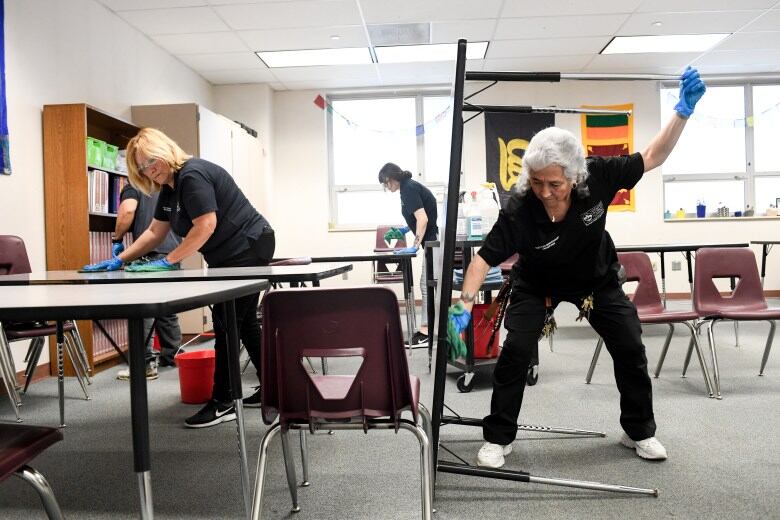Denver school custodians, bus drivers, teachers’ aides and other hourly wage workers will receive a roughly 3% pay raise next school year, after the unions that represent them came to an agreement with the school district Monday.
Hourly wage workers will get an additional 0.5% raise if Denver voters approve a school tax measure in November. The deal grants hourly wage workers raises closer in percentage to those won by Denver teachers — which was the unions’ goal.
“What we’re doing here is important work, and we want to thank you for treating the [education support professionals] equally as you would a teacher,” said John Adams, president of the Amalgamated Transit Union, which represents bus drivers and mechanics. “It’s not quite the definition of equity, but we got a little bit more equality here.”
Union leaders argued that most hourly wage workers are people of color who live paycheck to paycheck — a reality that contradicts Denver Public Schools’ stated value of equity.
The unions had been asking for larger raises, while the district was offering less. The deal reached on Monday represents a meeting in the middle. It will cost the district from $3 million to $4 million, a Denver Public Schools spokesperson said.
The negotiations occurred as the district is cutting $65 million from its budget because of a decrease in state funding. In making the cuts, district officials prioritized avoiding layoffs and providing pay raises for workers who make $25 an hour or less.
“We must ensure employees at the lower end of the pay scale can earn a livable wage for all they do for our students and our community,” Superintendent Susana Cordova said.







